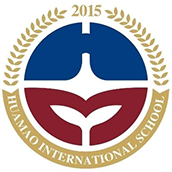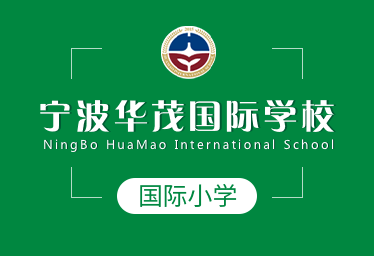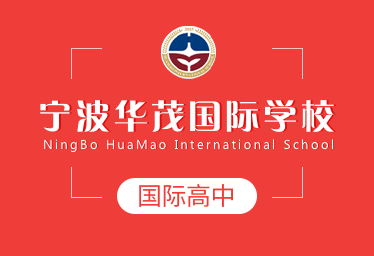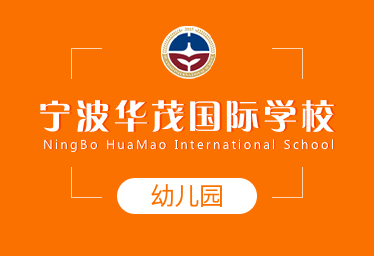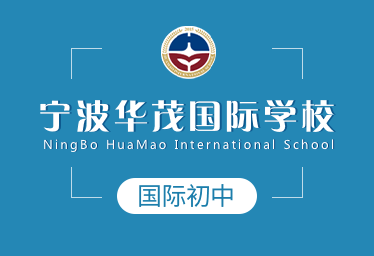宁波华茂国际学校初中生设计集装箱提案,教科书式跨学科单元
来源:国际学校招生网
时间:2022-01-28 10:35:42
在宁波华茂国际学校,如果说IB PYP小学阶段是为了建立孩子的学习热情,通过通识教育为将来各学科做铺垫,那么MYP初中阶段则对学生的进一步分科学习提出了更高的学术要求。

这一点在MYP项目近期的IDU跨学科教学单元中体现得淋漓尽致。起初,华茂教育集团为初中师生出了一道难题,邀请学生参与设计位于C楼阶梯教室旁的废弃集装箱,将其改造为集设计、艺术、音乐教室、演出场地、休闲餐点于一体的学生活动场所。经过多学科深入讨论、教研之后,MYP教师团队决定融合设计、数学、视觉艺术和英语四门学科进行了跨学科探究单元教学,以校园内原有废弃集装箱为载体,让同学们运用学科知识进行提案设计。这一方案得到了所有初中生的积极响应。

首先,由设计课老师Chris为同学们讲述设计集装箱的一些相关理论知识。例如,作为建筑设计的一部分,我们首先需要考虑该建筑应具备哪些功能,如何运用现有材料和模型将想法付诸实现。同时,作为日常设计教学的一部分,Chris老师再一次强调了建筑设计应考虑宏观和微观两个方面,既要突出建筑本身的特点,又要对内部各个区域做清晰的功能划分,将空间利用最大化,并充分考虑光线的照射。部分学生甚至在初稿完成后利用编程软件设计出3D建筑模型,舞台、观众席、门窗、休闲吧、桌椅甚至楼梯等细节一一得到体现。

紧接着,数学老师Yarina又针对如何测量集装箱这个庞然大物的问题和学生们展开讨论。最后得出结论,可以利用太阳光对于集装箱顶部在镜子中的的反射距离进行测量,利用入射角等于反射角以及相似三角形计算出无法触及的集装箱高度。作为基础学科之一,MYP的学生们对于将数学知识应用到生活中并不陌生,此前他们已经尝试过利用抛物线计算最佳投篮角度、自行设计《愤怒的小鸟》新关卡、利用线性代数制作精美纱线画、为学校重新设计停车场等等。
随后,视觉艺术老师Marjorie又进一步对学生们的设计提出美学上的要求。引导学生发散思维,运用想象力,为集装箱的外观和内部设计添上各种图案或颜色,充分利用点、线、面以及艺术课上学到的各种绘画、手工制作技巧凸显华茂教育独有的美育特色。
当然,所有的设计理念离不开语言的表述。因此,在跨学科单元教学的最后,由英语老师Keola和Tiara为学生讲述如何写好一份设计提案。为了突出重点,使评委对本组的设计理念和集装箱构造亮点印象深刻,同学们尝试三步骤写作,包括提出设计目的、陈述问题和解决方案以及总结,并对创新之处采用要点罗列的方式进行详细说明。
在整场活动中,所有MYP学生跨年级分为20组,6-7名学生为一组,先对集装箱进行测量,在图纸上画出模型,再利用设计老师提供的同比例纸质模型进行拼接创作。每个学生承担了不同的角色任务,例如组长、记录员、PPT制作、数字模型制作、提案写作以及演讲等。在创作过程中,同学们“绞尽脑汁”和“灵光一闪”常有发生,更重要的是在创作过程中,他们学会了如何发挥自己的优势,懂得了如何与他人合作。
通过国家课程与IB课程体系的融合,华茂国际学校MYP初中项目的课程研发旨在稳固学生知识的前提下,以优质的教育资源帮助学生夯实学术能力,为稳步过渡到高中阶段打下基础。初中年级的探究课程有助于学生们更好地衔接到高中IB DP阶段。“在MYP,我们倡导学生通过探究式的学习方式,主动思考,不断进行大量的调研与分析,从而加深对知识的理解,并且为IB DP大学预科课程做好准备。同时,这也意味着IB课程体系下长大的孩子更像孩子,并且更具创造性,这无疑将在未来带给他们更多竞争力。” MYP初中中方负责人叶琳老师如是说。
In the IB Middle Years Program (MYP), interdisciplinary learning integrates two or more subjects to create new understanding. At NBHIS, MYP further develops the cross-subject learning, with deeper inter-disciplinary study.
MYP program's recent interdisciplinary teaching unit took up the Huamao Education Board challenge to middle school teachers and students by inviting them to design a space for design, art, music, a showroom or dining place around the shipping containers next beside building C. After in-depth discussions, the MYP faculty team demonstrated an interesting proposal with interdisciplinary elements.
Christopher Mead, the design teacher, explained some design theoretical knowledge for the students. For example, as part of architectural design, we need first to consider what functions the building should have and how to use the available materials to bring the ideas into reality. Chris emphasized that the architectural design should consider both internal and external structures, highlighting the characteristics of the building itself and making a clear functional division of inner space, also considering the light exposure. Some students chose to use programming software to design 3D building models after the first draft was completed; including details such as stage, audience, doors and windows, lounge bar, tables and chairs, and stairs.
Immediately afterwards, Yarina, the math teacher, discussed with the students how to prepare the measurements of the container. She concluded that the distance of sunlight reflecting on the top of the container in the mirror could be measured. The height of the unreachable container could be calculated by using the angle of incidence equal to the tip of reflection and a similar triangle. MYP students had applied their mathematical knowledge to life previously, in the campus parking lot project.
Marjorie, a visual arts teacher, then gave students some aesthetically pleasing suggestions. Students were guided to think outside the box and use their imagination to add various patterns or colours to the exterior and interior walls of the containers. Making full use of the dots, lines and surfaces, they used different drawing and drafting skills learned in art class to highlight their designs.
We use language as a tool for communication with other people. Writers use words to communicate with their readers, while designers use visual language to share with their users. Fonts, colours, shapes, visual elements such as icons — those are elements of design language. Therefore, at the end of the interdisciplinary unit, English teachers Keola and Tiara talked to the students about writing a good design proposal. To focus and impress the judges with the group's design concept and container construction highlights, the students wrote in three steps: presenting the design purpose, stating the problem and solution, and summarizing with a detailed explanation of the innovations bullet point list.
All MYP students from Y7-Y9 were divided into 20 groups throughout the event, with 6-7 students in a group. Each student took on a different role: group leaders, recorders, making PPT presentations and digital models, and writing proposals. Students often had brainstorming and bright ideas during the creation process, but more importantly, they learned how to use their own strengths and collaborate with others.
By integrating the National Curriculum and the IB curriculum, the MYP Middle School Program at NBHIS has been developed to help students solidify their academic skills with quality educational resources and lay the foundation for a steady transition to high school. The middle school years help students better articulate to the high school IB DP level. Ms Yorlin Ye, MYP Chinese Coordinator, explains: "At MYP, we promote an inquiry-based approach to learning where students actively think and continually conduct extensive research and analysis to deepen their understanding and prepare them for the IB DP college preparatory courses. It also means that students are more creative and innovative, which will undoubtedly bring them more competitiveness in the future."
更多浙江国际学校资讯,可以到本网站查看!
免责声明:文章内容来自网络,如有侵权请及时联系删除。

